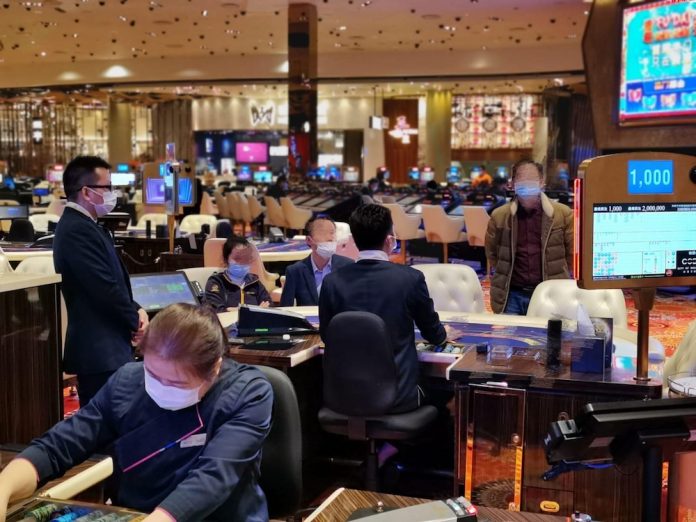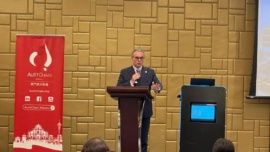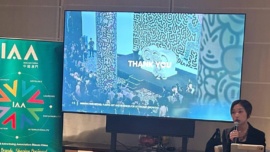Over two decades ago, the Danish complexity scientist Per Bak made a ‘sandpile’ by dropping grains of sand, one by one, until a pyramid was formed. He continued dropping more grains until a small cascade of sand ran down the side of the pyramid; continuing adding, grain by grain, the sandpile rose up again in a different shape. Continuing further, the entire pyramid fell down like a house of cards and a new, different shape was born.
Opinion | Keith Morrison – Author and educationist

The final tiny, almost invisible, grain of sand caused total chaos, the straw that broke the camel’s back. The grains of sand were connected and had an effect on each other (‘self-organization’). Conjecture: we live in a state of ‘punctuated equilibrium’, where catastrophic events bring irreversible change in networked, connected communities.
The exact movement, reconfiguration and subsequent catastrophic destruction of the sandpile were largely unpredictable. Bak remarked that, just before the last grain of sand was added, the sandpile was at the ‘edge of chaos’, at a tipping point, a critical moment, in a state of ‘self-organized criticality’. The effect of the single, tiny last grain of sand produced a monstrous, disproportionate effect, breaking the mould and building something new.
Recognize anything? A tiny, pervasive virus operating in an intimately intra- and inter-connected world has had ferocious power, bringing nations to their knees in a matter of days. A lesson from Bak.

In 2016, the UK government’s Exercise Cygnus, a three-day simulation of the effects of a virus pandemic, showed that in just a few days it would have a catastrophic effect. Now we have seen this for real across the world. Exercise Cygnus revealed major gaps in provision for handling such a pandemic, exactly those witnessed in recent months: personal protective equipment, inadequacy of emergency preparedness, equipment, response and contagion prevention.
What happened? The report was reportedly buried. It was seen as ‘too terrifying’ and too much of a threat to ‘national security’ to be released to the public. Moreover, the government was reported as not doing anything as a result. Now we pay the price of such neglect.
We must prepare for change, for a new normal. In Bak’s example, the new, emergent sandpile was not like its predecessor; an irreversible change had occurred. A butterfly is not simply ‘more caterpillar’; a frog is not simply ‘more tadpole’; a change happens that cannot return the creature to its former state: there is a new normal. So it is with post-pandemic society.
The changes wrought in society by the coronavirus are irreversible; society, economy and governance are not the same as they were before the pandemic. A new reality has emerged which cannot be judged on criteria derived from old norms, from pre-virus life. We have crossed a tipping point into a new world. We must be prepared for it, not pretend that it hasn’t happened and that things will settle down to pre-virus ways.
Come into this new world with optimism for a brighter future; the winds of change refresh. Bak and his successors identified two significant features. Firstly, the closer that people are propelled to the ‘edge of chaos’, to the tipping point, the more creative, open-ended, imaginative, diverse, and rich are their behaviours, ideas and practices, and the greater are the connectivity, networking and information sharing (content and rate of flow) between peoples, groups and organizations. Secondly, the changes and the new normal are self-organized and self-organizing; they inhere in people.
Here in tiny Macau, connected to many societies and communities both internally and externally, we should capitalize on the immense opportunities for self-organized, productive connection, creativity, imagination, rethinking the directions and priorities in society, economy and governance in post-pandemic Macau, which put reliance on gaming, tourism and shopping into a somewhat unglamorous shade.
The impetus for change is ubiquitous. We cannot look back. Look at what happened to Orpheus and Eurydice when they looked back on leaving Hades. The future requires creativity, ideas, new ways of looking at, and acting for, society.
Think tipping points, large effects from small causes, preparing for new futures, creativity, self-organized, irreversible change, and optimism for a new, engaged reality in post-pandemic society. We mourn the losses of those who have left the world, but welcome new sunrises.
























